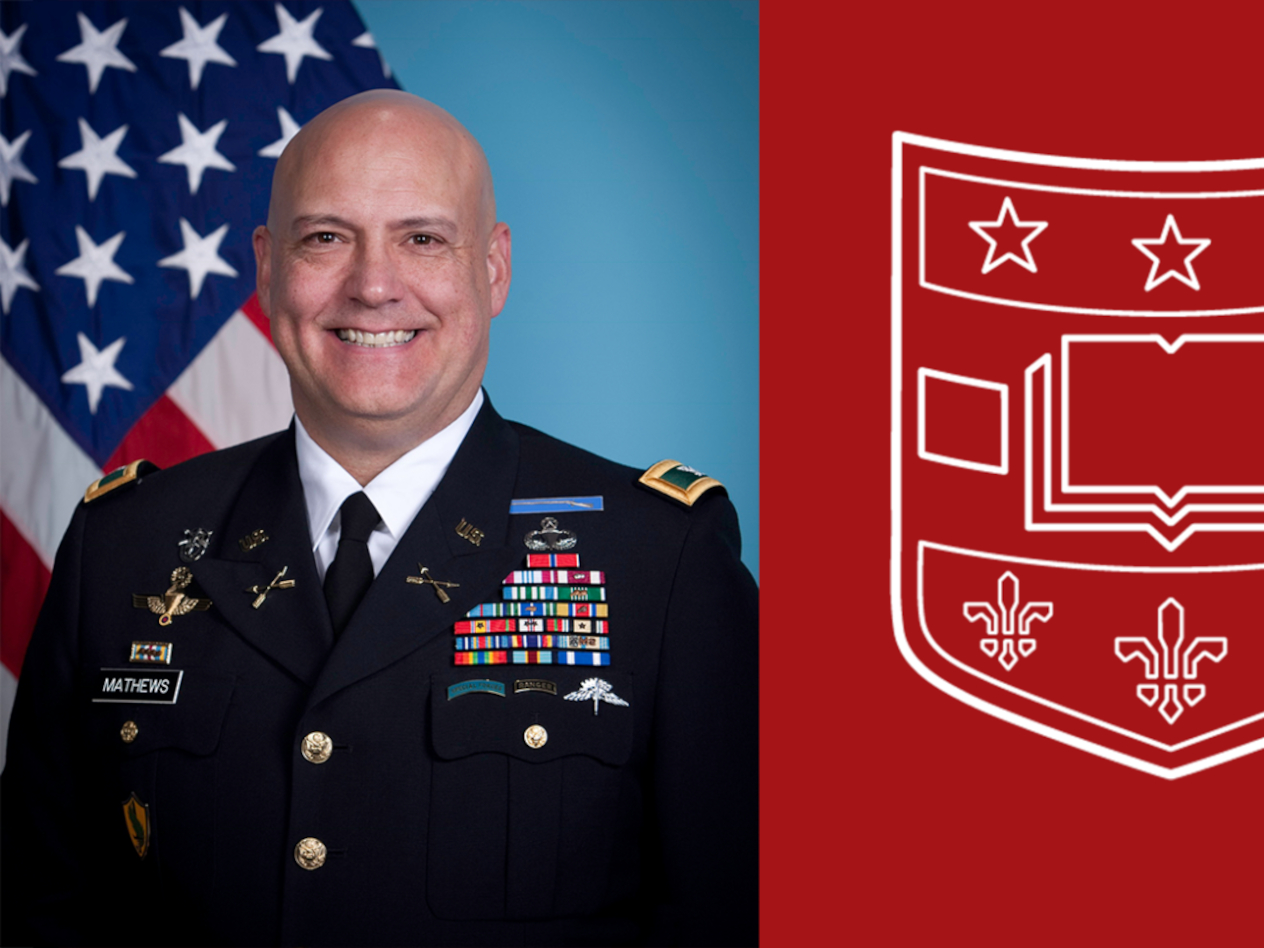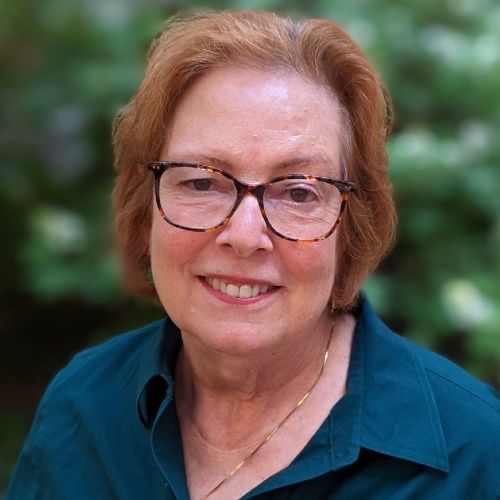Twenty years ago, Robert S. Mathews Jr. was a student at Olin, working toward his professional MBA.
Also 20 years ago in September, terrorists hijacked four jetliners and flew them into the twin towers of the World Trade Center and the Pentagon, and crashed one in a field in Pennsylvania. Almost 3,000 people were killed.
“Unfortunately, things took a very bad turn in the world.”
In December 2003, Mathews, a U.S. Army reservist, was recalled to active duty to support the wars in Iraq and Afghanistan.
He promised himself that, one day, he would return to Olin.
In all, Mathews served 33 years in the U.S. Army. Early in his military career, before the terrorist attacks, he commanded the Special Forces Operational Detachment Alpha in the 7th Special Forces Group (Airborne).
In that role, he supported counter-drug and counter-terrorism training in the U.S. with Mexico and Central and South America. Ecuador was his specialty. One of the highlights of his career, he says, was participating in peace talks between Ecuador and Peru.
A word about the Army Special Forces. They’re also known as Green Berets. As Mathews himself said, “It takes an individual with a high tolerance and endurance for physical and mental pain to complete the two and half years of training.”
As the years passed, he rose in rank, took on expanding responsibilities and received numerous medals, including the Bronze Star and the Legion of Merit.
Recall after recall
Let’s backtrack. During his time in the Army Reserve, and some time before the September 11 attacks, Mathews worked at G.E. Capital in Danbury, Connecticut. He was with the Commercial Equipment Finance group as a Six Sigma Black Belt.
A certified Six Sigma Black Belt leads and facilitates teams of subject matter experts on process improvement and lean initiatives that executives champion in the business.
He was then promoted to Six Sigma Master Black Belt and sent to the GE Small Business Finance Group in St. Louis, where he also started his PMBA at Olin.
Months later, the Army recalled him into active duty. In all, while he was trying to build his corporate career, he was recalled four times for a year each time. After one of those recalls, Citibank hired him in New York City as the senior vice president of national client onboarding. That lasted a year before the Army called him into service again.
Eventually, the Army pulled him back full time, into what’s called acquisitions. “Now, most people think of acquisitions like mergers and acquisitions, but the Army does it differently,” he said.
“It’s more the procurement and the contracting. We essentially are the business part of the Army that negotiates the contracts, commodities, services and minor military construction throughout the world for the different parts of the Department of Defense.”
Mathews wore two hats: Chief of staff of the Mission and Installation Contracting Command and acting commander of the 418th Contracting Support Brigade. As chief of staff, he managed the executive staff responsible for 1,500 people and a $15 billion portfolio throughout the United States. As the acting commander, he oversaw 500 people and a $3 billion portfolio for Army contracts West of the Mississippi.
A two-mile run
As of today, Mathews is officially retired from the military. Yesterday was U.S. Army Colonel Mathews’ last day in uniform.
The Army retired him because of a medical condition.
“We’re required to do a bi-annual physical fitness test to demonstrate that we’re in good working order and that we’re still able to do all the things that the military asks us to do,” he said.
“Well, in that test it was the first time in my entire military career where I couldn’t finish a two-mile run. I was having a hard time with breathing.”
An MRI on his chest revealed pulmonary embolisms in his left lung. “It was very, very dangerous.”
In Afghanistan, Mathews and others were repeatedly exposed to fumes from burn pits the Army used to get rid of waste. “The fumes and everything, we think, got into my lungs created these problems.”
The condition would prohibit him from remaining in uniform, especially because he has to be on blood thinners. It was likely that no one could stop the bleeding if he was shot or injured in an explosion.
Mathews’ career, however, is far from over.
These days, he is enrolled in Olin’s Executive MBA program: He expects to graduate in April 2022.
The Army is footing the bill as part of his vocational rehabilitation benefits.
Mathews says he’s getting the tools he needs to transition back into corporate banking. More important, he says, is having access to professors with extensive experience, along with building a network in his EMBA 56 class and with people in other EMBA classes.
“It had been 20 years,” Mathews said. “And this was my first opportunity to return to the program.”

